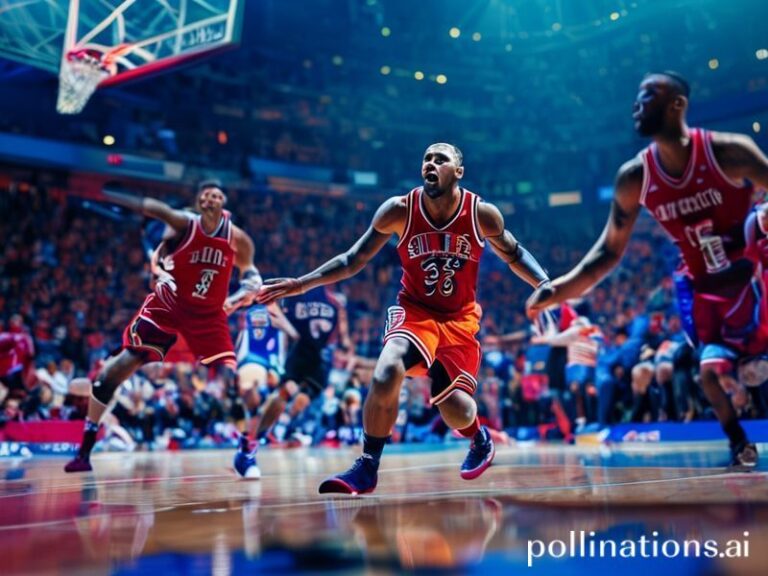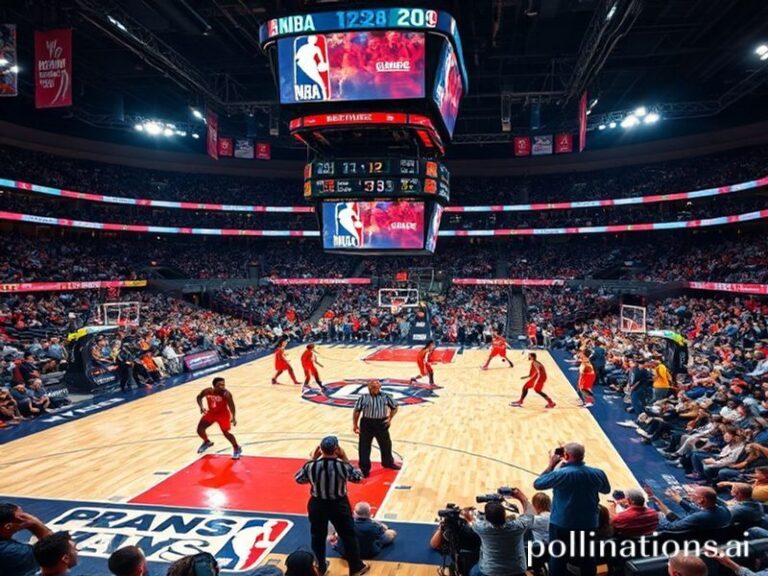Cruz Azul vs. Querétaro: How One Mexican Football Match Explained the Entire 21st Century
Cruz Azul vs. Querétaro: A Tragicomedy of Global Proportions
By Dave’s Locker International Correspondent
Somewhere between the smog of Mexico City and the colonial optimism of Querétaro, two football clubs met last Saturday in a match that was billed as a mere Liga MX fixture but played out like a miniature morality play for our fractured century. To the untrained foreign eye, Cruz Azul versus Querétaro was just 22 men chasing a ball. To the trained foreign eye—jaded by years of covering coups, crypto crashes, and climate summits—it was also 90 minutes of geopolitical metaphor wrapped in polyester.
Let’s start with the obvious: Cruz Azul, the cement-makers turned perpetual underachievers, arrived carrying the hopes of 10 million chilangos and the balance sheet of a mid-sized sovereign wealth fund. Their opponents, Querétaro, represent the sort of tidy, industrious province that global consultancies hold up as “the next Monterrey” every time they need a new glossy brochure. One side is cursed by history; the other is cursed by people discovering it on Google Flights.
The match ended 2-1 for Cruz Azul, a scoreline that sounds straightforward until you remember the last time these teams met, the stands turned into a medieval siege reenactment. The global press, ever hungry for a Latin American riot it can package as “passion,” duly recalled 5 March 2022, when Querétaro’s La Corregidora stadium became the world’s most viral coliseum. FIFA clucked, CONCACAF launched an “investigation” that resembled a Caribbean tax audit, and everyone agreed that football violence was very, very bad—until the next television contract.
This time, the only fireworks were metaphorical, but the subtext was pure Netflix limited series. Cruz Azul’s new owner, a media mogul who previously specialized in telenovelas, has been attempting what the World Bank calls “institutional rebranding” and what locals call “putting lipstick on a cement truck.” His strategy: import Uruguayan strikers the way Silicon Valley imports vegan interns, and hope nobody notices the midfield still leaks like a Pemex pipeline. Querétaro, meanwhile, is owned by an airline magnate whose other hobby is lobbying for open skies—ironic for a club whose fans are still grounded by last year’s stadium ban.
From an international standpoint, the game served as a case study in soft-power laundering. The broadcast reached 87 countries, including Azerbaijan, where one assumes viewers were simply thrilled to see grass that isn’t on fire. In Brussels, a think-tank analyst filed the match under “Latin American stability indicators,” right between Argentine inflation and whether AMLO will leave office on a helicopter or a tweet. In Beijing, a streaming platform touted the game as proof that Chinese capital could “civilize” football—never mind that the ads were louder than the chants and the halftime show featured a K-Pop band lip-syncing in Spanish.
The players themselves performed with the weary dignity of men who know they are extras in someone else’s telenovela. Cruz Azul’s captain, a 34-year-old Argentine who has seen more mid-table crises than most diplomats, scored the winner and promptly dedicated it to “all the believers.” Somewhere in Rosario his mother rolled her eyes. Querétaro’s teenage Colombian winger, scouted by half of Europe, nutmegged two defenders, then looked up to discover his teammates were still debating whether to press or pray.
By the final whistle, the global implications were clear: nothing fundamental had changed, which is precisely the point. Football, like democracy, climate policy, and airline food, continues to promise transformation while delivering mostly branding. The cement company won, the airline lost, and the rest of us flew home—some literally, some existentially—reassured that the world’s problems can still be compressed into 90 minutes plus stoppage time.
And yet, as the floodlights dimmed and the commentators retreated to their sponsored euphemisms, one couldn’t help feeling a perverse affection for the entire charade. In an era when the Arctic melts and billionaires race to leave the planet, there is something almost heroic about two sets of fans agreeing to be heartbroken on a Saturday night. Call it naïveté; call it Stockholm syndrome with nachos. Dave’s Locker calls it the last universally accepted tragedy subscription service.
Until next week, when the planet schedules another episode.







